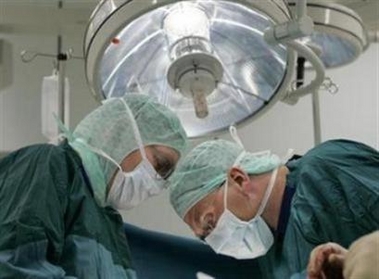Needle sticks endanger surgeons-in-training
(Reuters)Updated: 2007-06-28 11:33
BOSTON - Surgeons in training are accidentally stuck with a potentially contaminated needle once every seven months, increasing the risk that they will develop AIDS or hepatitis, US researchers reported on Wednesday.
If reported immediately and treated within 24 hours, the chance of getting the AIDS virus following a needlestick from an infected patient is almost zero, said Martin Makary of the Johns Hopkins University School of Medicine in Baltimore.
Half of the surgical residents failed to report such injuries to their employee health center, usually saying they were too busy. Two-thirds of the injuries were self-inflicted, often while putting in stitches.
Even when doctors were treating high-risk patients, they failed to report the needlestick in 16 percent of the cases.
Male doctors, those who had been stuck frequently before, and surgeons who knew that nobody else had seen them get stuck were the least likely to report the incident, the researchers found.
Doctors "don't talk about it," said Makary. "There's no public reporting system they're part of, no focus groups, no chat rooms. This is something people keep to themselves and, understandably, they don't want the stigma. There's some degree of humiliation involved" when you have to acknowledge that you made a mistake.
And the treatment itself "takes a huge toll on someone, especially when you're working 30- and 36-hour shifts routinely each week. It's a stressful job, long hours, high responsibility," and the medicine you have to take for a month to prevent illness produces nausea, said Makary. "That's a bad combination."
He said the system puts surgeons in training at risk because "we tend to put our most vulnerable and least-trained surgeons on the front lines of battle" doing simple surgical procedures on the patients that are the most likely to be infected with hepatitis B, hepatitis C and the AIDS virus.
The National Institute for Occupational Safety and Health has tracked thousands of needlestick injuries that are reported, and infection rates vary. An estimated 0.3 percent of healthcare workers get HIV from a needle stick and up to 30 percent are infected with hepatitis B after such a stick.
|
||
|
||
|
|

